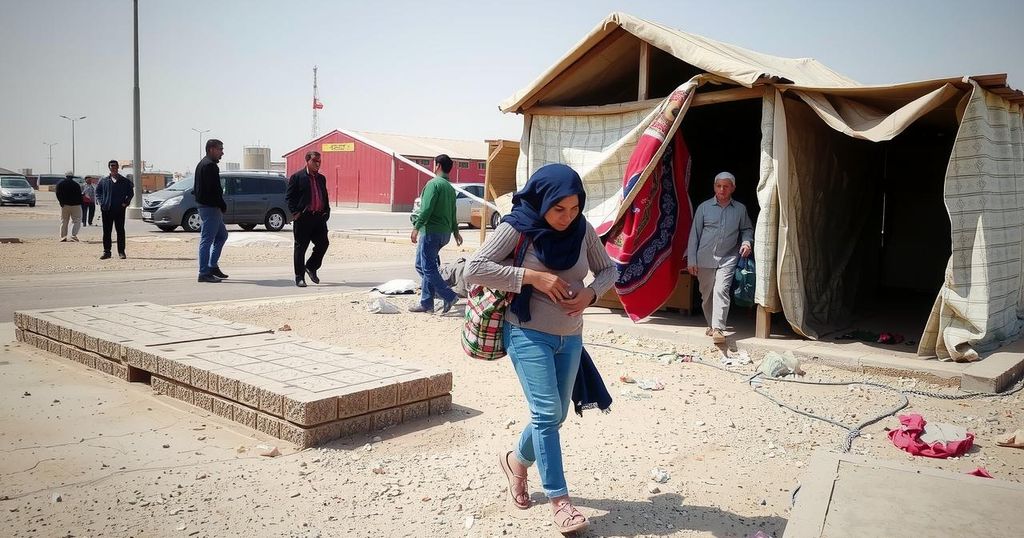As Egypt grapples with economic struggles exacerbated by conflict in neighboring regions, officials shift their stance on refugees, viewing them as a strain on resources while simultaneously seeking Western aid. Previously welcomed, refugees now face criticism for driving up costs and social issues, reflecting a significant change in the narrative surrounding their presence in the country.
In Egypt, as economic challenges intensify, the government and certain officials have begun to view refugees primarily as both a burden and a potential source for financial solutions. Previously, figures such as Azza Mostafa have offered warm welcomes to the Syrian refugees fleeing their war-torn homeland, yet recent broadcasts reflect a stark shift in sentiment. Increasingly, officials are holding migrants accountable for exacerbating economic strain, such as rising rental costs, while blaming them for social issues like female genital mutilation.
Historically, Egypt has offered refuge to many, creating a relatively welcoming environment for those seeking asylum. This tradition has included waves of Sudanese, Yemeni, Eritrean, and Gazan Palestinians fleeing conflict. Nevertheless, as economic pressures mount due to regional instability and the influx of migrants, the narrative has changed, and the Egyptian government is now seeking Western assistance to manage its refugee population, highlighting the complex interplay between humanitarian responsibilities and national resources.
Egypt has long served as a sanctuary for those escaping conflict across the Middle East and North Africa, being home to a significant number of Palestinian, Sudanese, and Syrian refugees. The nation prides itself on its historical role as a refuge for displaced peoples. However, the current economic crisis, exacerbated by turmoil in neighboring countries, has led the Egyptian leadership to reevaluate its approach towards refugees. In this new context, the influx of migrants is viewed with increasing scrutiny amidst calls for external support to sustain resources strained by the growing refugee population.
In summary, Egypt’s perception of refugees is undergoing a dramatic transformation in response to economic hardships, shifting from a narrative of hospitality to one of blame. Officials are increasingly voicing concerns about the impact of refugees on local economies and societal issues, prompting calls for international assistance. This change highlights the delicate balance between humanitarian obligations and the pressures faced by host nations in challenging economic circumstances.
Original Source: www.nytimes.com






